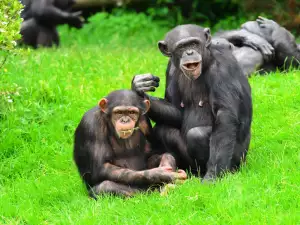Individuals with albinism are some of the least understood on the planet. There is a wide abundance of myths surrounding them, including that they're sterile, that they're cursed and even that their body parts can be used as magical talismans.
Neither of these claims reflect reality. The only difference between albinos and everyone else is the absence of pigment in their skin, high sensitivity to the sun and problems with their eyes. These are all things that can be treated. Here are a few facts about albinism to break away the stereotypes.
Albinism is a genetic disorder (it is present at or before birth), causing a decrease or complete absence of melanin. This is the pigment responsible for skin, eye and hair color. Albinism is sometimes called hypopigmentation.
People with albinism can have a long and healthy life, just like anyone else. Their greatest threat is skin cancer, which develops easier in them due to their unprotected skin.
Herman Melville's famous book "Moby Dick" is based on a real whale with albinism. Also known as the "White Whale of the Pacific", Moby Dick was an extremely aggressive sperm whale living near the island of Mocha off of south Chile. The giant survived countless attacks by whale hunters. Every time it would strike back with fury. According to some data, it was responsible for the deaths of over 1500 people.
The cause of albinism is the fact that certain damaged genes don't produce melanin and cannot be made to produce it even after treatment.
In Europe, 1 in every 20 000 people have albinism. In Central Africa, the percentage is higher - 1 in 3000.
Persons with albinism synthesize vitamin D 5 times faster than darker skinned people.
There are many different types of albinism. Ocular-skin albinism is the most common. In it, the hair and skin of the face remain pale white during the entire life of the person.
Scientists have developed tests which can determine the chances for a mother-to-be to give birth to an albino baby. This is done by testing the hair follicle to see whether it can produce melanin.
Even today, in Tanzania they believe that the mother of an albino child had cheated on her husband with a white colonist. In other African countries, albinos are hunted and killed because of the belief that their body parts bring luck or have magical properties.
Despite some beliefs, albinism is not contagious. It is just as natural as (but less common than) blonde or brown hair, blue or green eyes. So there's no reason to think that people with albinism are different from us in any other way.














